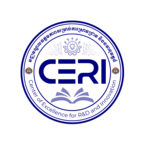
Article 49
The Center for Excellence for Research and Innovation has the following structure:
• Office of External Research Projects
• Office for Academic Research Projects
• Office of Publication and Research Lab.
Article 50
The Office of External Research Projects the following roles and responsibilities:
• Organize and coordinate research and research activities with development partners
• Implement national and international research projects
• Participate in the implementation of the university's strategic plan
• Prepare and maintain data files related to training activities or workshops
• Organize publishing activities, training activities or workshops to disseminate recent research and innovation in various fields
• Promoting cooperation with national and international development partners
• Prepare research proposals to compete for research projects
• Participate in research activities organized by institutions and higher education institutions
• Prepare and maintain data files related to project research coordination activities
• Prepare reports on work activities as assigned to the center director and University management.
• Perform other duties as assigned by the center management.
Article 51
The Office for Academic Research Projects has the following roles and responsibilities:
• Facilitate the writing of professors' books
• Organize short training courses for students
• Participate in the implementation of the university's strategic plan
• Prepare to maintain economic, social, business and other data of national and international
for use in research
• Organize workshops, competitions and student research programs
• Prepare research projects to compete for research projects
• Participate in research activities organized by institutions and higher education institutions
• Prepare and maintain data files related to activities to facilitate the writing of books.
• Lecturer and Student Research
• Prepare reports on work activities as assigned to the director of the center and the University management.
• Perform other duties as assigned by the center management.
Article 52
• Office of Publication and Research Lab has the following roles and responsibilities:
• Prepare books and research works of the university
• Promoting cooperation with national and international development partners
• Facilitate the use of research rooms by researchers and students to implement the plan.
• University Strategy
• Prepare and maintain data files related to teacher training activities in the office
• Prepare to publish books and other research works of the University for the Promotion of work cooperation with national and international development partners
• Prepare research projects to compete in the implementation of research projects
• Prepare and maintain data files related to activities coordinating printing and assignments
• Manage the practice room
• Participate in research activities organized by institutions and higher education institutions
• Prepare reports on work activities as assigned to the center director and University management.
• Perform other duties as assigned by the center management.